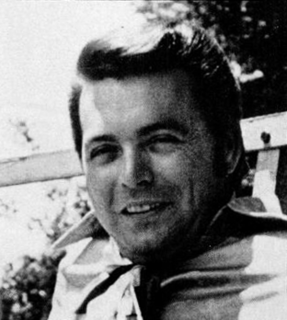A Quote by Mickey Gilley
'Cause I can make more money going in and doing my recordings and selling them through my entities that I have, rather than going to a record co. and them release a record and pay me 5 percent of what they make off it.
Related Quotes
Artists should re-emphasize performance and de-emphasize recording. You always make more money if you have a healthy performing life than you will if you have even a moderately healthy recording life. Don't make recording the most important thing you do. Make performing the most important thing you do, and then you can make recordings and sell them at your shows, because record labels aren't going to be around to help you get on the radio stations, and the radio stations probably aren't going to play you anyway.
People will download the music for free and they'll pay for it if they want to give you a compliment. They don't have to pay for it. And the only way the artist can make money was by touring 'cause the record label didn't take that money. Unfortunately now, cause the record company's not making money from the downloads, now they want to take money away from everything.
I think bands will actually make more money without record companies; a much bigger share of the money will go to the bands. You won't have record shops taking 40 percent of the money. You won't have record labels taking 40 percent of the money. So they don't have to sell as many albums as they used to in the past. So it's not necessarily a bad thing if record companies disappear.
The live thing is separate from the record for me. I have to figure out a way to make the songs work live. It's always going to be different than it is on a record, because every record I've made, there are people playing parts on there that are not going to be coming on tour with me. As much as still feeling connected to it, it's more like rediscovering.
In theory, when you're working with a record label, you're just borrowing their money. And that's basically how the record industry works, right? It's like, you borrow $100,000 from a record label, so you don't make any money until you make back that money for them. In theory, they have you held hostage, so you've got to do every little stupid thing that they want you to do.
I won't necessarily make new music because when you make a record there are these great expectations on the side of the record company who are going to produce your record, promoters that are going to do your shows. They want you to do interviews, they want you to play shows. I mean, they want it to be a campaign.
I call it "being interrupted by success." We had done The Soft Bulletin, which came out in 1999, and we knew we that were gonna make another record before too long. But in between this, we were still in this mode of kind of just - not re-creating what we could be, but kind of doing different things. For the longest time in the Flaming Lips we were like, "Make a record, go on tour. Come back, make another record," and you know, I think, frankly, we were kind of like, "There's more to life than just recording records and going on tour."
It wasn't just like, "I want to make a record that sounds like classic rock" at all. It was more like, "I want to make a record that is a little more unsettling and maybe isn't as easily understood now." That just seemed more important, like, for me to make as an artist, than it was to make something to make people feel safe right away.
One of the most effective strategies to make your child more self-control is the weekly giving of allowance or pocket money as an opportunity for parents to teach self-control and model self-control. So rather than just handing the child the money and leaving it at that, the parent hands them a modest amount that has to be managed through the week, sits with the child and takes the time to anticipate what's going to be coming up next week, what the child would like to do and helps them to make choices and understand the limited amount of money they have.



































